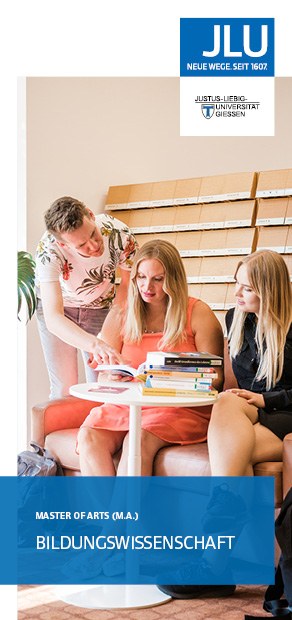Educational Science with a Focus on Parenting (M.A.)
Taught in German
Overview
- Overview
-
Overview
The consecutive three-semester Master's programme in Educational Science offers graduates of the teacher training programmes L1 "Teacher Training at Primary Schools" and L2 "Teacher Training at Secondary Schools" an opportunity to qualify in Educational Science at Master's level with the perspective of being able to pursue a further academic career and to acquire a doctoral qualification, which is not yet available with the First State Examination in these programmes alone.
With 90 CP in three semesters, the programme offers both the above-mentioned graduates and international students a perspective to open up further professional fields through academic employment in the Master's programme or, if applicable, to strive for an academic perspective with a doctorate.
Subject to approval, the programme will be introduced in the winter semester 2022/23. As soon as the approvals for the programme have been completed through the usual JLU committee channels, you will find further details and information on this page.
Excerpts from the programme profile
The programme is primarily aimed at graduates of a programme for the teaching profession at primary schools (L1) or secondary schools (L2). As these courses are only 6/7 semesters long, they are considered to be a university degree, but are not recognised as "academic university degrees". In the professional field, graduates of these courses are thus barred from access to the higher civil service, and in the collective bargaining sector it is not possible to be graded adequately for other courses of study. This means that relevant management positions in professional practice cannot be filled by these graduates, even though they would be very well suited (e.g. management positions in the school sector).
In academia, this degree (without postgraduate studies) does not allow admission to doctoral studies, which at the same time means that academic development in the field of primary school and H&R pedagogy is primarily carried out by people who do not themselves have relevant studies or professional practice. For the further development of the field, however, it is very important that L1/L2-
graduates can embark on an academic career, as it is precisely these who can impart academic knowledge that is also relevant to the professional practice of the teaching profession.For this reason, the degree programme is intended to impart the competences that were only rudimentarily taught in the above-mentioned degree programmes, but which are essential for scientific studies in the field of education.
These are in-depth subject knowledge in the field of educational science as well as sound knowledge of research methodology. Although the field of educational science is taught in principle in the teacher training programme, there is a lack of seminars that represent the subject in breadth. For this reason, in addition to in-depth knowledge of general educational science (compulsory module), in-depth knowledge of a special educational science or subject didactics should be taught in the degree programme (compulsory elective module).
Research methods are not part of an L1/L2 study programme and must therefore be taught on a basic level. This takes place via introductory methods lectures at BA level and in-depth research seminars in the form of a research-oriented internship (FOP).
Contact
- Central Student Service
-
- Beate Caputa-Wießner
- Wiebke Blumenthal, M.A.

